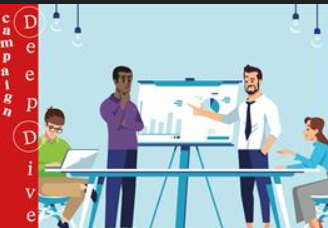Industry practitioners have cried out against the unfavourable operating environment that currently characterise the business climate in Nigeria. The observation was made during the 62nd Annual General Meeting (AGM) organised by the Nigeria Employers’ Consultative Association (NECA) at the NECA House, Lagos.
In his remarks, Dr. Mohammed Yinusa, whose address was presented by the 2nd Vice President of the association and MD/CEO of Nestle Nigeria, Mauricio Alarcon, lamented that the last two years have been challenging years for businesses as the economy was just recovering from the effects of the recession.
Citing a report from the United Nations Conference on Trade and Development (UNCTAD), Dr Yinusa revealed that Foreign Direct Investment (FDI) inflow reduced from US$3.5billion to US$2.2billion in 2018, a reduction of 36 percent.
According to him, countries such as Egypt, South Africa, Ghana and Ethiopia experienced positive inflows and are fast becoming preferred destinations for investors.
He, therefore, lamented that the operating environment was not conducive for businesses to thrive in Nigeria affirming that one year after the Presidential Executive Order on the Promotion of Transparency and Efficiency in the Business Environment to ease procedural and operational hiccups being experienced at the nation’s seaports, orderliness was yet to return.
He further noted that the World Bank had projected that West Africa regional growth would accelerate to 3.4 percent in 2019, stressing that growth rate in Nigeria was cut down from 2.2 percent in January 2019 to 2.1 percent in April 2019 because the country assumed that oil would sustain her economic recovery.
Dr. Yinusa, however, in the same breadth, expressed optimism that the national economy would witness some positive growth in 2019 on the back of increasing household consumption and fixed investment growth.
While setting business agenda for the government, he said: “Our agenda for the government is premised on the challenges ahead. The incidence of killings by herdsmen, increasing kidnappings and general banditry that left many dead and others homeless, the dire need for
infrastructural development, the urgent reforms of the oil and gas sector to reduce wanton mismanagement of resources and systemic corruption hindering it from achieving its full potentials.
“Unemployment surged from 9.0 per cent in 2015 to 23.1 per cent in Q3 2018, widespread poverty, with almost half of the population living in extreme poverty and rampant inequality exacerbate the country’s woes”
Continuing, he said: “There is the urgent need to make our country more productive through deliberate political will and constitutional reforms that are targeted at States and Local Governments’ dependence on the monthly revenue allocation in Abuja. State Governments must think out of the box to make their States economically viable and sustainable in the long term, eliminating high cost of governance and frivolous expenditure under the guise of security votes.”
Meanwhile, Vice President of the Federal Republic of Nigeria, Professor Yemi Osinbajo, in his keynote themed “Government’s Economic Agenda and its implications for Organised Private Sector” reiterated the Federal Government’s readiness under President Muhammadu Buhari’s led administration to fully implement the Economic Recovery and Growth Plan (ERGP) in his second term in office.
According to him, the first four years of Buhari’s administration was quite eventful, but added that the economy was crippled by the 2016 recession that hit the country.
“The second term of the President Buhari’s led administration is to see the full implementation of the Economic Recovery and Growth Plan (ERGP). The President has made his determination to lift 10 million Nigerians out of poverty in the next 10 years as well as sustain the economy on a 7% growth plan,” he said.
The Economic Recovery and Growth Plan (ERGP) is a medium term all-round developmental initiative focused on restoring growth, investing in people and building a globally competitive economy. The ERGP was launched in April 2017.






Comment
No comments found.